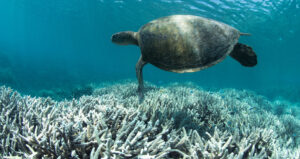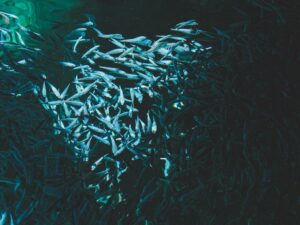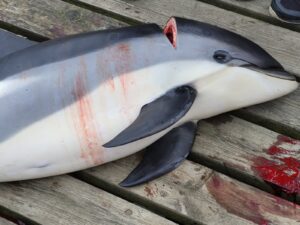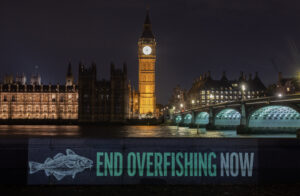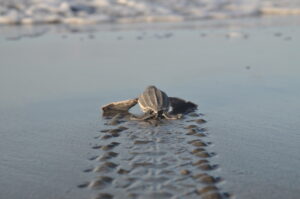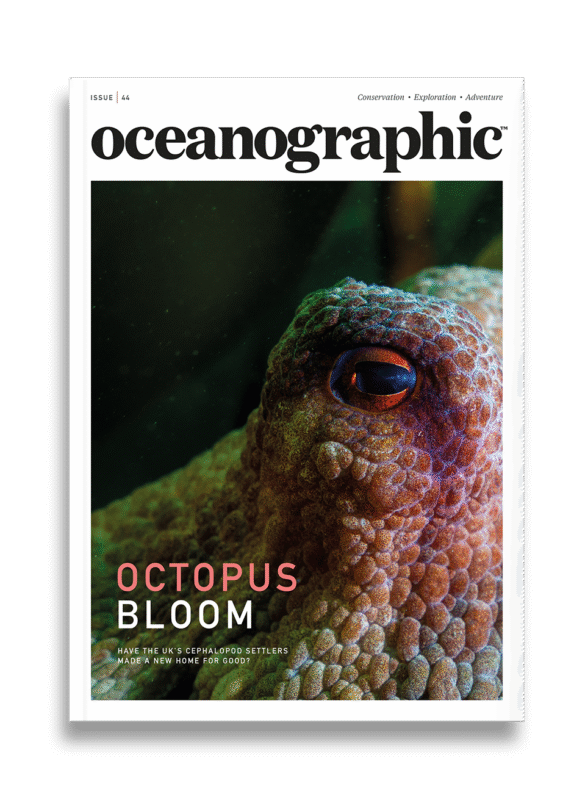A plastic plight: The haeyneo freedivers cleaning Korea's coast
At 70-years-old, Lee Jeong-ok - a long-time traditional South Korean female freediver - remembers when the ocean teemed with marine life, and plastic pollution was rare. Today, her time is split diving, running a seafood restaurant, and cleaning polluted beaches.
“It’s a never-ending story,” sighs 70-year-old Lee Jeong-ok.
The long-time haenyeo, a traditional South Korean female freediver, began diving at 18. She remembers a time when the ocean teemed with marine life and seafood, and plastic pollution was rare.
Today, things are different. As the union chief of about 80 full-time freedivers on Yeongdo, an island just outside Busan, Lee and the other haenyeo split their time between diving, running a seafood restaurant – and cleaning polluted beaches.
“When we return to the same beach we cleaned just a few weeks before, it’s just as bad. It’s heartbreaking”, Lee says.
Living just a few kilometres from where the fifth session of the Intergovernmental Negotiating Committee (INC) met to discuss a global plastic treaty last November, Lee had hoped the discussions would deliver real change. But while over 100 countries agreed to draw up a future plan addressing production cuts and chemicals, the 170 participating nations failed to reach an overall agreement. Now, with INC-5.2 just days away, Lee and the other haenyeo are waiting to see whether this round will finally bring progress.
“As locals, we don’t hear much about the negotiations, but we feel the pollution, and we see it”, she explains. “People in cities hear more, but they can’t always see much. So, I hope that others also can get into the water to see what’s going on. Because it’s bad”.
Without stronger policies, plastic production is projected to reach a staggering 736 million tonnes by 2040, according to the OECD. Every day that goes by, another 30,000 tonnes of plastic is poured into our oceans. While tech-solutions like ocean sweepers can catch plastic effectively, they often pose a threat to marine wildlife. In contrast, human-led clean-ups are more careful and better equipped to protect ecosystems – which is why they remain vital in many coastal communities.
The haenyeo, who have been working in the sea for centuries, know the ocean’s vulnerability better than most. Lee explains how marine debris, like ghost gear, not only entangle shells and conches but also the divers themselves. Several haenyeo in the area have lost their lives after getting trapped in ghost nets. Removing marine debris from the beach before it gets dragged out to sea is therefore not just about keeping the ocean clean – but also about keeping the divers safe.
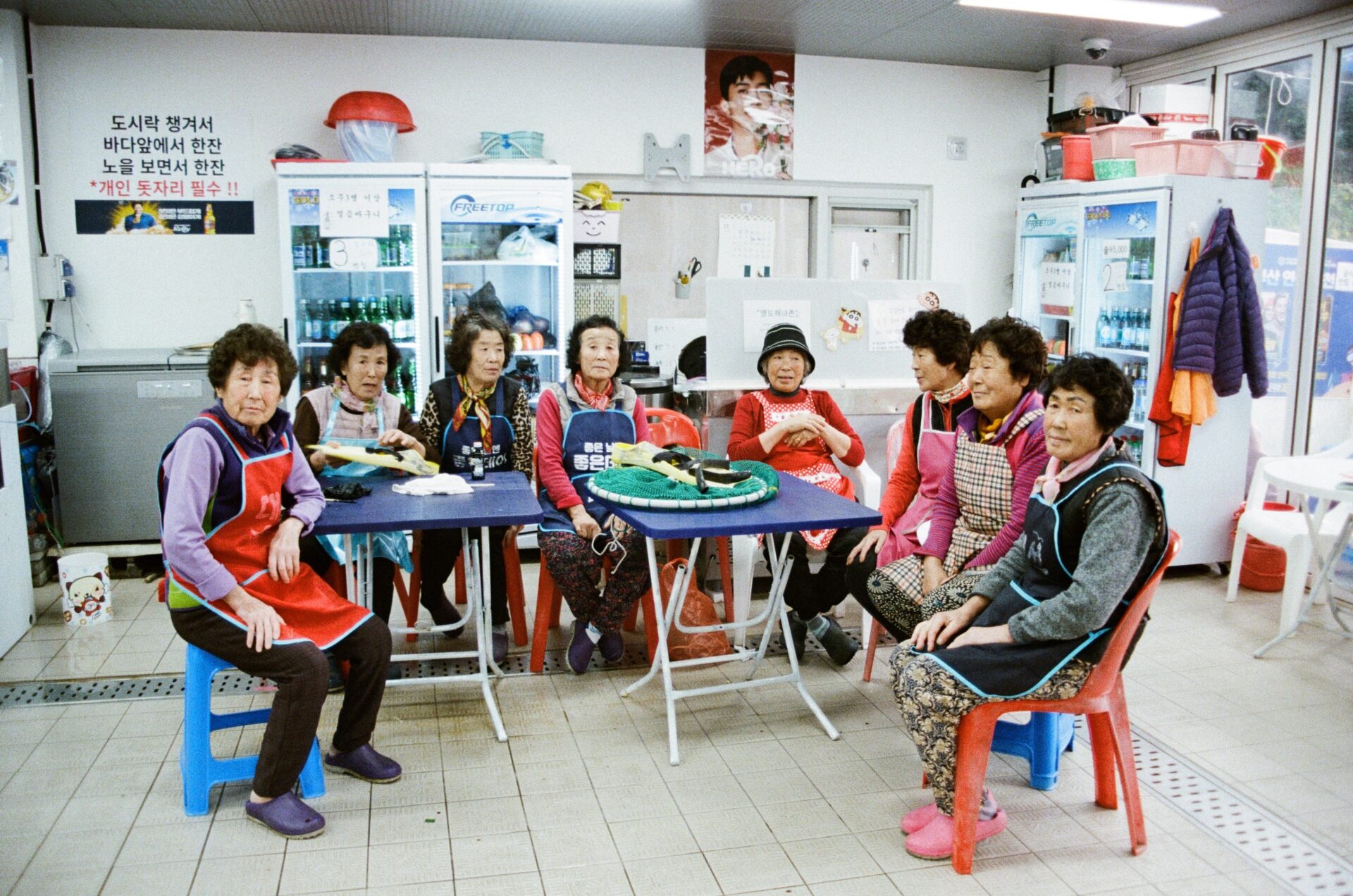
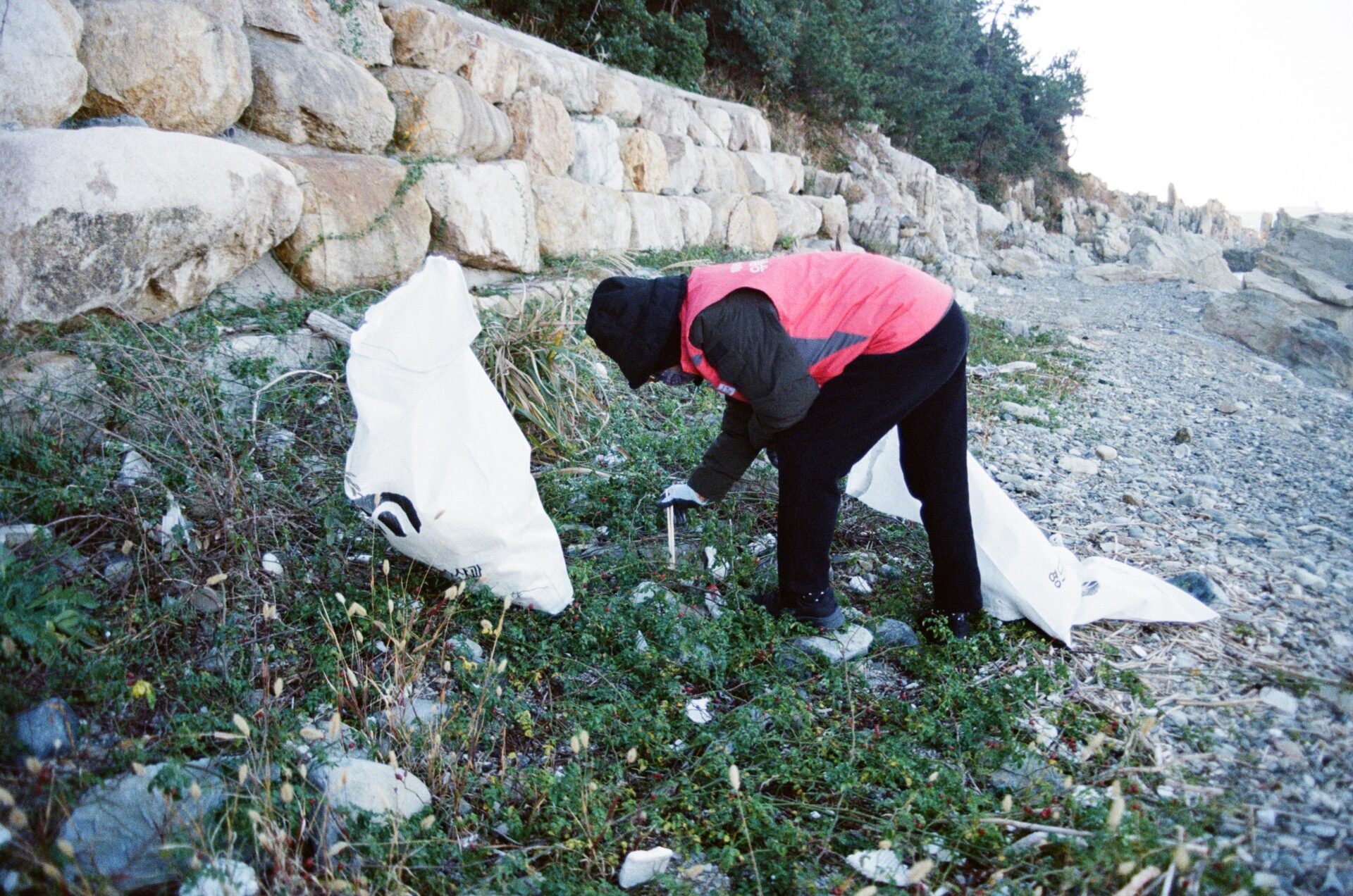
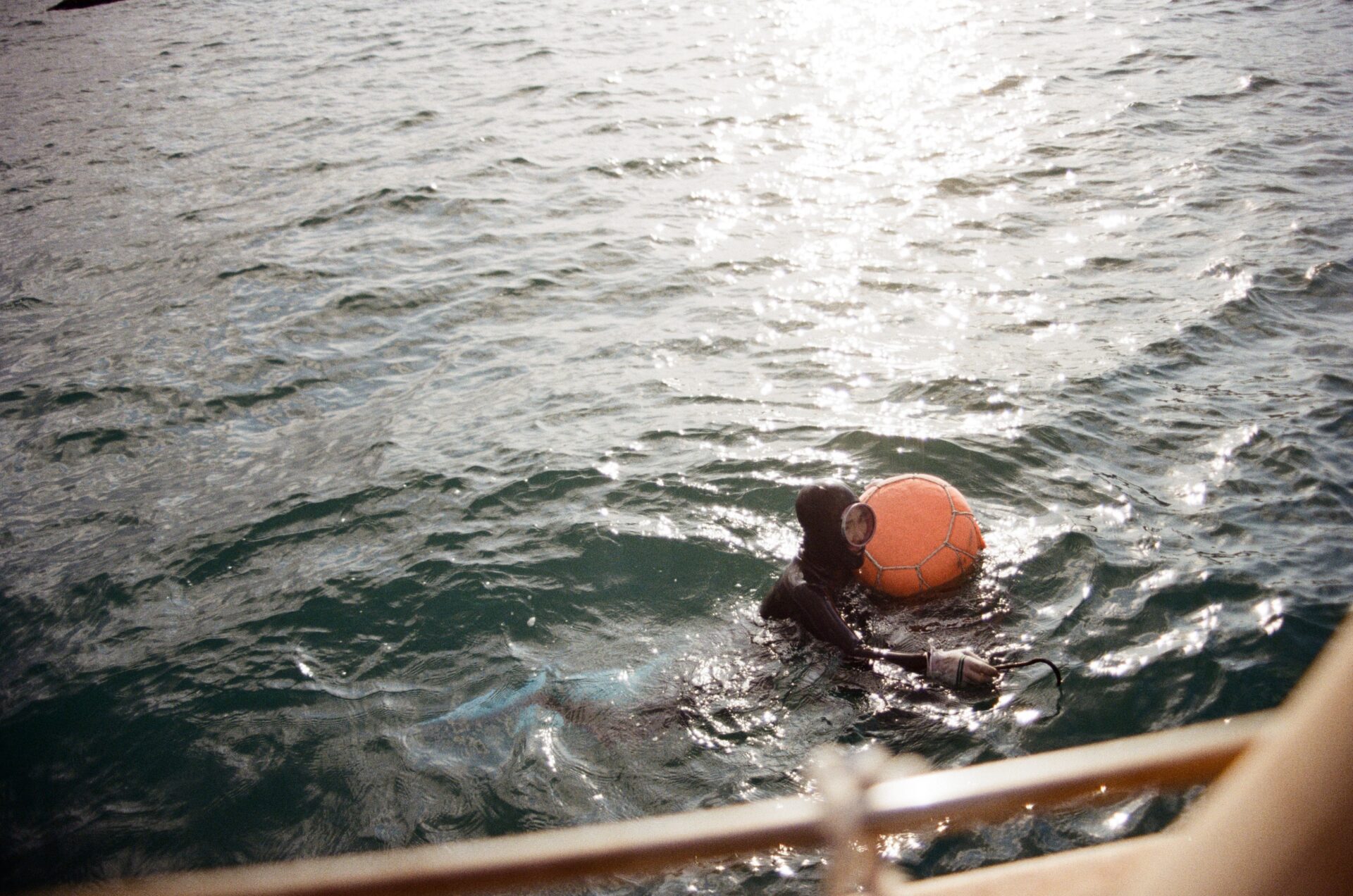
While South Korea has introduced several policies to address the issue of abandoned fishing gear, recently introducing a fishing gear deposit-refund system that requires fishers to pay a deposit when they buy fishing gear, only to get the money back when the gear is returned, marine hubs like Yeongdo continue to generate substantial plastic waste.
The beaches are even worse after storms or typhoons, which often bring in heaps of plastic bags, plastic food wrappers, bottles, buoys and ropes carried by ocean currents.
“On our days off, we clean”, Lee explains.
But not everyone wants to talk about the plastic issue. Some haenyeo feel that focusing on pollution could harm their business – as these areas are also where they hunt and sell their seafood from. Lee, however, feels speaking up may result in change.
Her favourite part of the day is chatting away with the other divers, but her second favorite is showing resturant guests their fresh catch. More and more visitors – both international and Korean – seem to be just as curious about the lives of the haenyeo as they are about the seafood itself. In the past few years, the divers have ridden on a wave of popularity. Documentaries and news articles in both Japan and South Korea have repeatedly featured images of elderly divers under headlines like: “The last grandma divers”.
But Lee has no plans of quitting. From the early days when the first freedivers in South Korea began to jump into the ocean on Jeju island, being a haenyeo has never been easy. Back then, the divers wore white-cotton swimsuits all year-round. In winter, freediving was ice cold (and painful!), but as the ocean was full of marine life, they only needed an hour or two to catch enough to get by.
These days are different. Sometimes Lee finds more plastic bags than sea cucumbers. Some sea creatures have been wiped out entirely: both this summer and last, as temperatures have soared, entire colonies of sea pineapples have died – leaving big areas underwater brown and lifeless, and no “meongge hoe” (sea pineapple sashimi) on the restaurant menu.
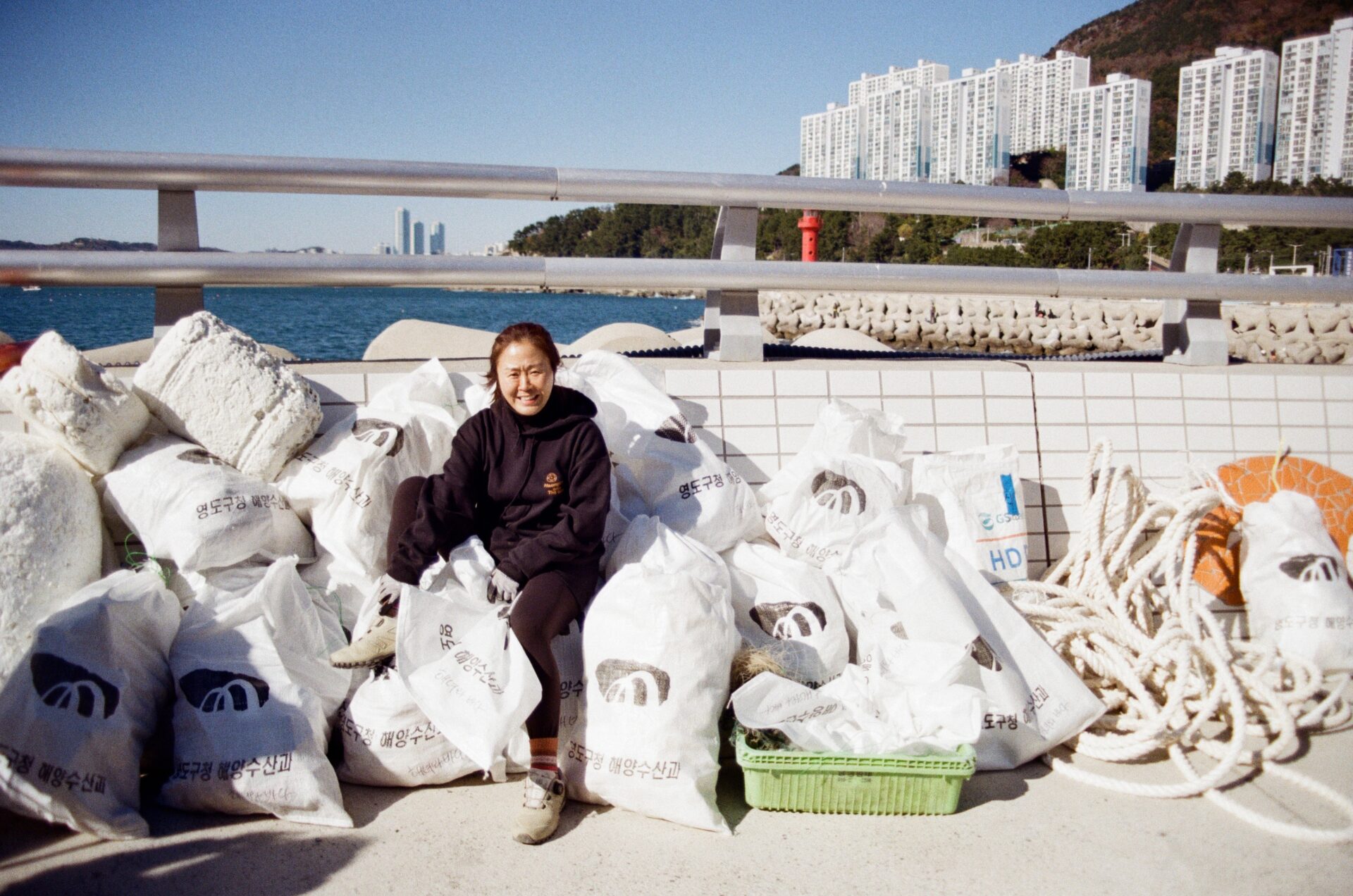
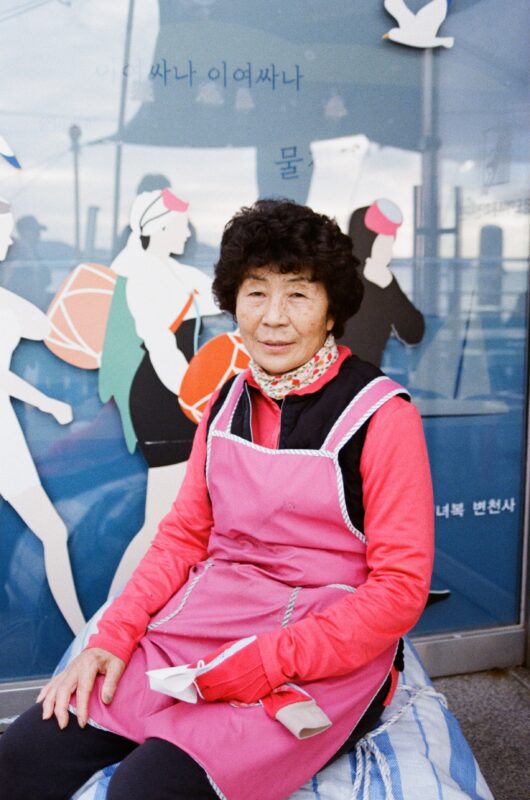
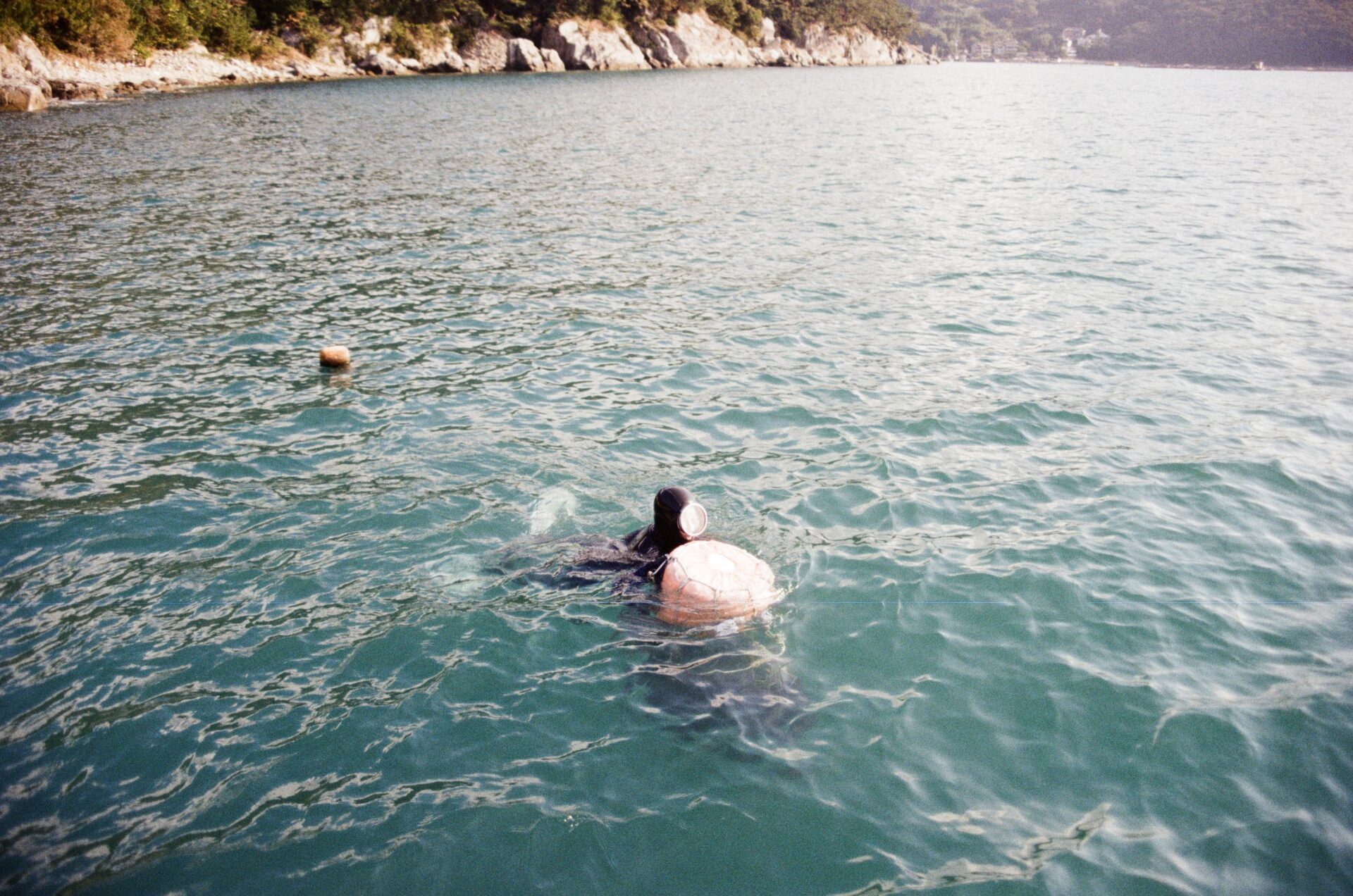
In the 1960’s, Korea underwent rapid economic growth, and ocean pollution became increasingly evident. Divers began noticing plastic debris at greater depths in the ocean, leading to Korea’s Marine Litter Research Center starting to analyse ocean currents. They found that a lot of the plastic that washes up on the coast of Korea stems from international shipping routes, including China and Japan – but a significant amount also originates from South Korea itself.
According to Sunwook Hong, founder and CEO at Our Sea of East Asia Network, the average pollution density on South Korea’s beaches was 6.8 items per meter between 2005 and 2021. Responsible for managing the Korean National Beach Litter Monitoring Program, a long term government project that tracks marine debris levels, Hong says “plastics accounted for approximately 80% of the total debris, a level relatively high compared to other countries”.
In Yeongdo, the burden of beach cleaning falls largely on the haenyeo, many of whom are in their sixties and seventies. There’s no denying it’s hard work, and they often find larger nets or debris from boats that feels so heavy “it feels like dragging a grown man across the sand”, as one haenyeo puts it.
Fortunately, Lee and her colleagues are not alone. Recently younger freedivers, like 44-year-old Shin Young, have stepped in to help. After graduating from the haenyeo academy two years ago, Shin soon realised the romanticised idea of becoming a full-time haenyeo didn’t quite match the reality. Low wages and a difficult recruitment period – sometimes the haenyeo have to dive at least two-three years before being fully accepted into a crew – led her to work as a part-time freediving and scuba instructor instead.
Hearing about the pollution that overwhelmed the older haenyeo inspired her to act.
In 2023 Shin founded Haenyeo and the Sea, a grassroots initiative that organises cleanups in Busan’s coastal haenyeo communities twice a month. The group brings together both haenyeo, haenam (traditional male divers), and volunteers to clean beaches and underwater areas in haenyeo villages. Because many of the beach-cleaners are diving instructors, they are able to cover vast areas and deeper parts of the sea that others might not reach.
“The older haenyeo call me ‘Trash!’ Every time I show up somewhere, they are like: ‘Oh look, there is ‘Trash!’”
Shin admits beach-cleaning is almost addictive and that she struggles leaving if there are pieces left. “There is more debris than we can manage”, she says. “It’s hard work!”
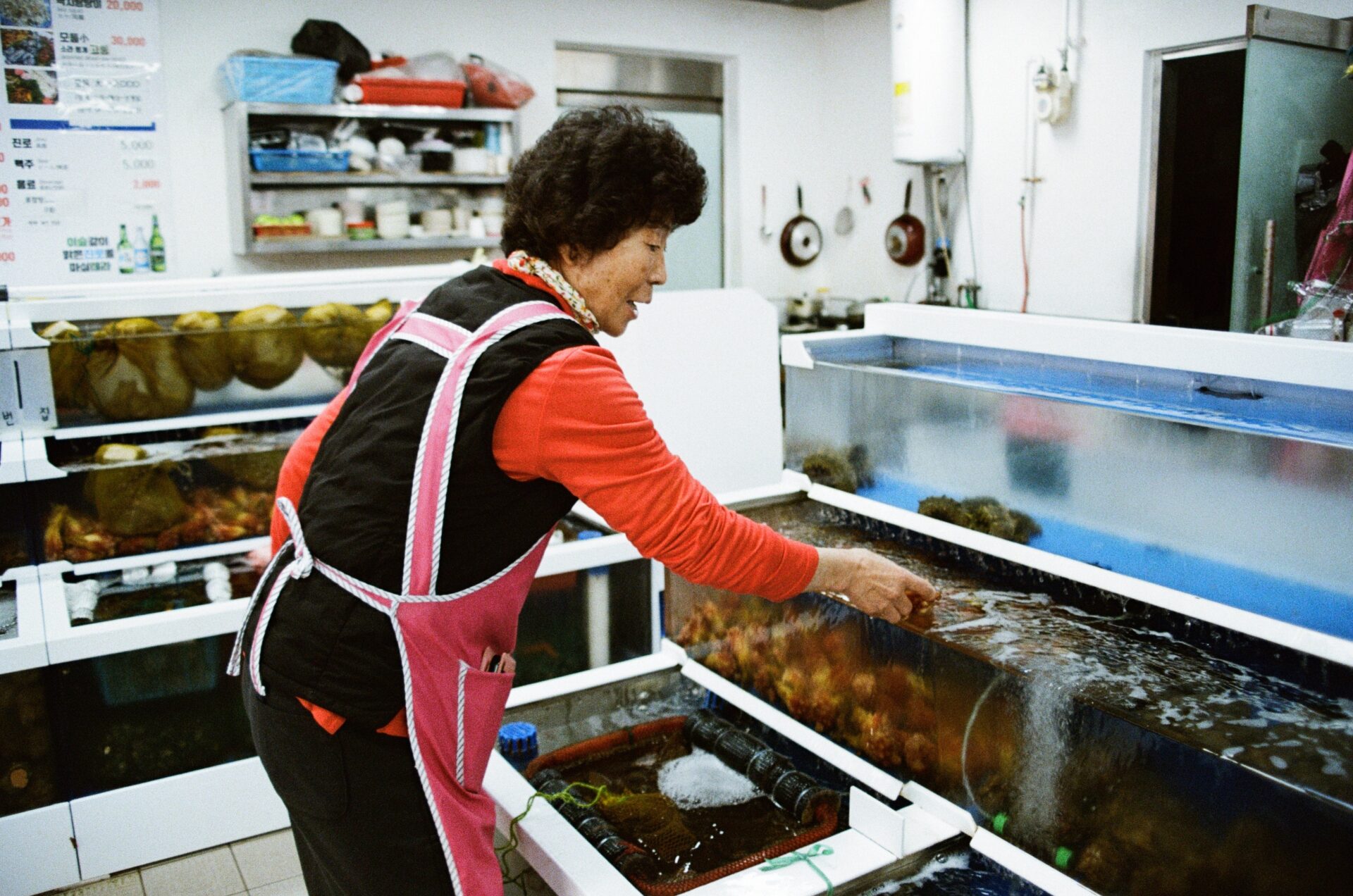
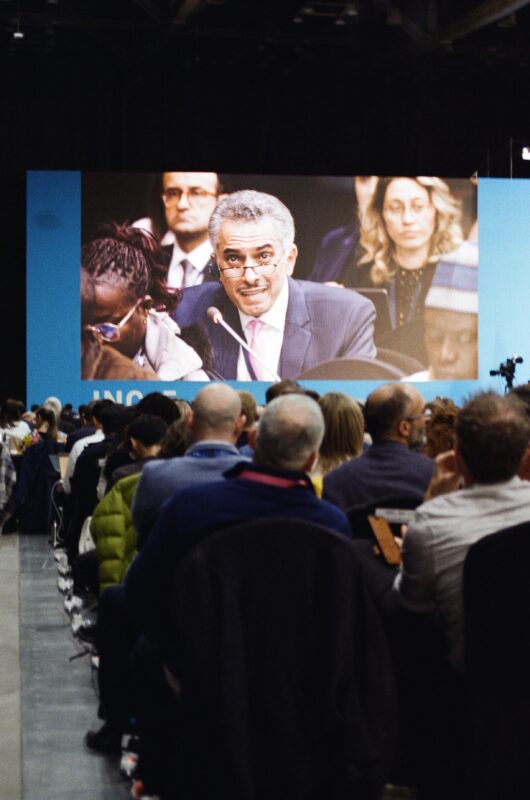
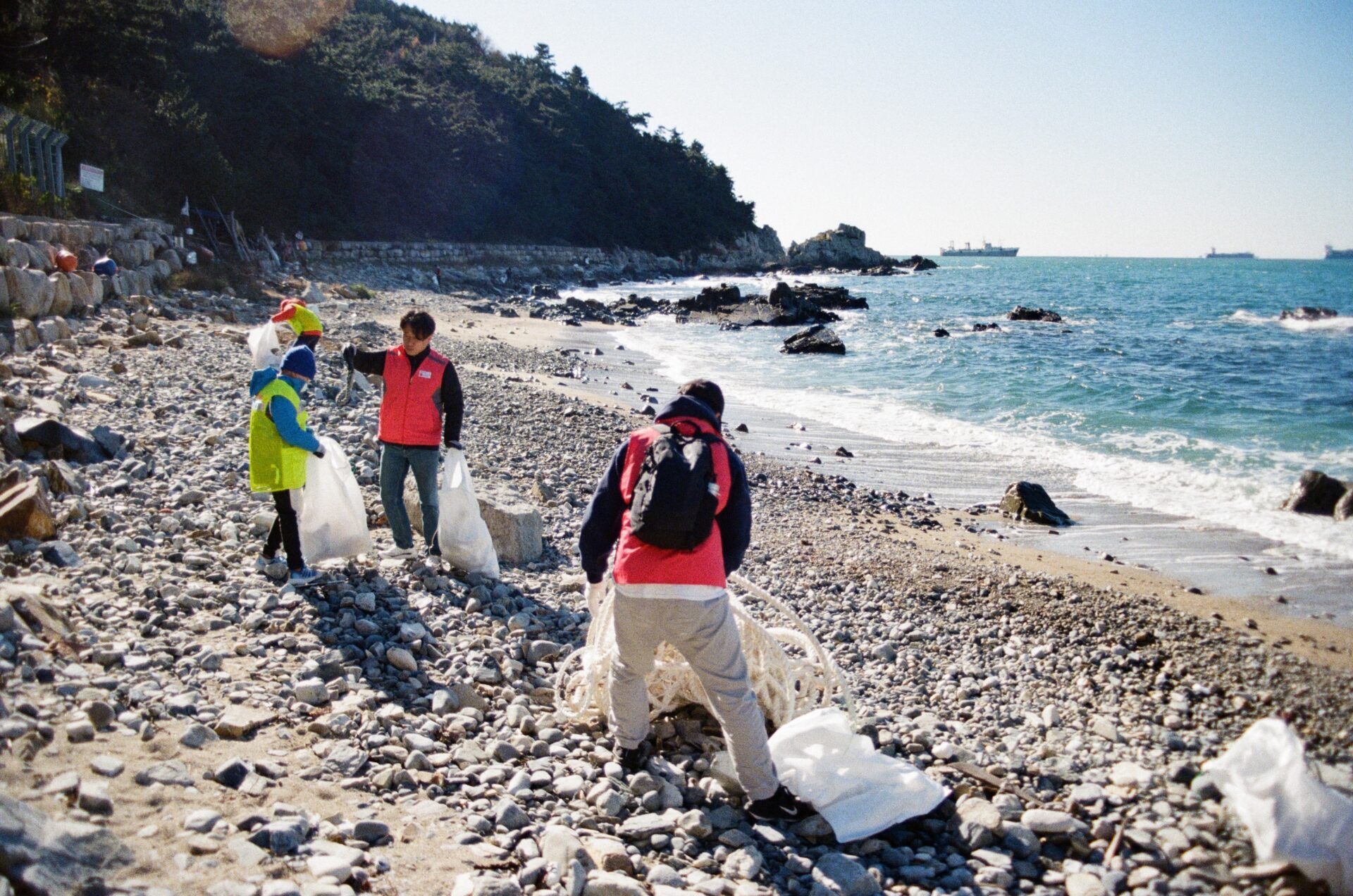
As a member of the High Ambition Coalition, a commitment from over 60 countries to end plastic pollution by 2040, South Korea has pledged to support a legally binding global plastic treaty. However, during the last round of negotiations, South Korea was accused of having a passive role, including what some viewed as reluctance to support the Panama statement.
The statement came from Juan Carlos Monterrey Gómez, National Climate Change Director of the Ministry of Environment of Panama, during the last days at the talks, when he reminded world leaders of the urgency: “Everything we love is on the line. Every reef, every river, every ocean”, he said.
Monterrey, with his notorious hat, looked up at the many faces and continued: “Every piece that we allow to produce without limits is a direct assault on our health, on our nature and our future. Those blocking progress, you are allowing this crisis to fester, and it will kill us”, he said.
When nurdles washed ashore from a capsized cargo ship and onto the beaches of Sri Lanka in 2021, in what has been classified as the single largest plastic spill to date, local communities, particularly groups of women, stepped up. Using manual sieving methods or trommels, they collected thousands of bags of nurdles and their efforts were key to mitigating the spill’s impact on marine ecosystems. Still, according to recent findings by the BBC, the nurdles continue to pollute – even getting more toxic as the pellets seem to suck up pollution from the environment. As a result, thousands of local fishermen have been forced to quit their jobs, and even today, four years after the spill, locals continue to sieve countless plastic pellets from the sand.
But why should local communities bear this burden? Trisia Farelly, professor of anthropology at Massey University and senior research scientist at New Zealand’s Cawthron Institute, has worked with coastal communities and plastic pollution for years. She is concerned about the environmental toll on local communities: “They don’t produce it themselves, they don’t want it – it’s having an adverse effect on their community and their environment. Why should they bear the cost of plastic pollution they are not responsible for?”, she says.
The Scientist Coalition for an Effective Plastics Treaty, which Farrelly coordinates, is a network of independent scientific and technical experts who are voluntarily contributing to the UN plastic treaty’s negotiations. One of their core issues for the upcoming treaty discussions in Geneva is working towards a treaty that addresses not only waste management but also upstream factors that contribute to plastic pollution, such as cutting production levels and hazardous plastic chemicals.
“Producers have all the agency and the power necessary to prevent plastic pollution”, Farrelly says. “But they prefer to externalise the environmental cost of the hazardous and unnecessary plastic they produce onto the consumer while blaming them for it”.
She believes the same principle applies when you talk about community cleanups. “It’s like; why should the communities be cleaning up?”
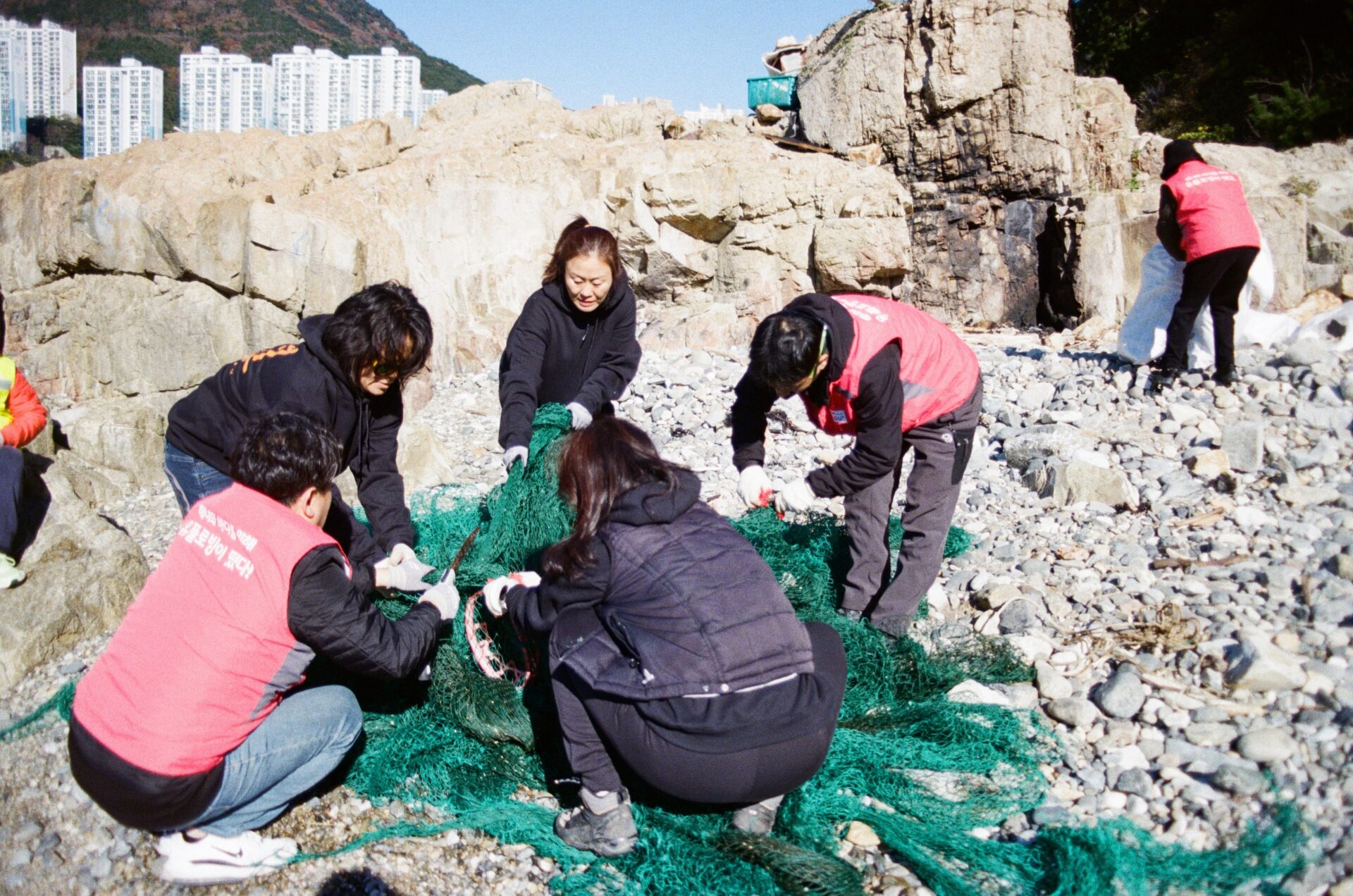
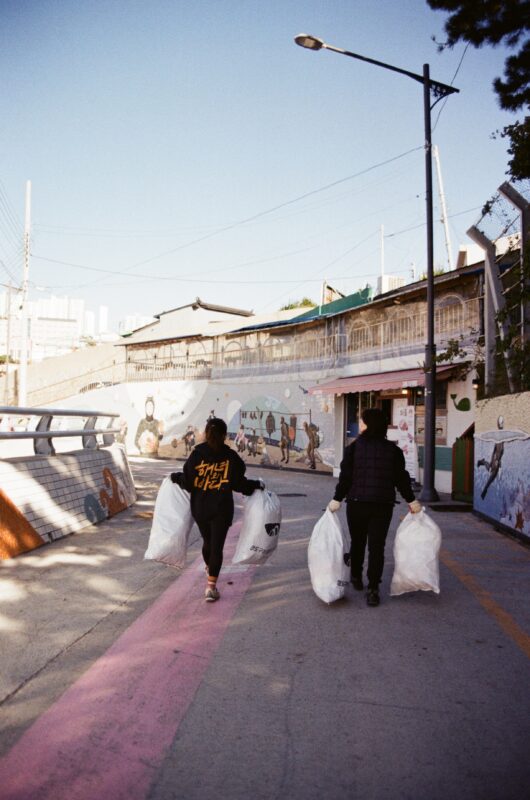
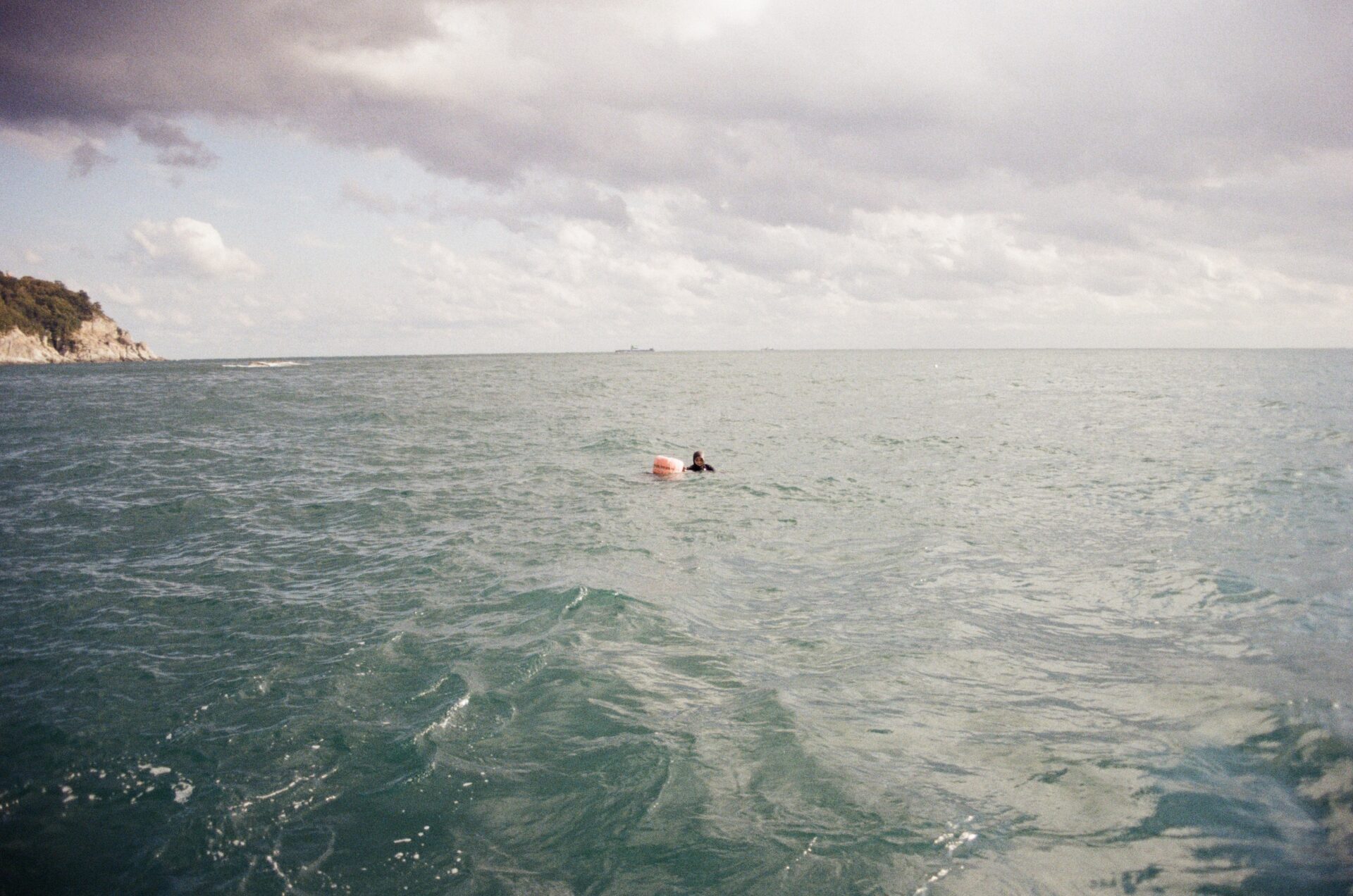
According to a 2024 report from Grid-Arendal, the production landscape today remains dominated by fossil-based plastics, accounting for approximately 90,6 % of global plastic production. And with plastic leaking into the environment forecasted to triple by 2060, it’s easy to see that something needs to happen.
However, during the last round of talks in Busan, negotiations could not unite on a text of a binding instrument that addresses the full lifecycle of plastic. Some countries, like Saudi Arabia, Russia and Iran, opposed any measures that would restrict plastic production, and argued instead for improving waste management and recycling.
So did the 220 fossil fuel lobbyists who were also registered to attend. Many from civil society, such as Indigenous Peoples, scientists, youth leaders and frontline community members, on the other hand, were physically locked out of negotiations with meeting rooms too small for everyone to fit.
Farrelly adds that many from civil society that attend the UN talks come from coastal areas and are actively involved in cleanups. She emphasizes the importance of involving diverse voices in the process and stresses the need for everyone to be heard at the upcoming talks, including the unique perspective of indigenous communities. “They bring many generations of wisdom and knowledge we really need to understand”, she says.
While there is still hope that INC-5.2 will conclude with a strong treaty, some worry that the current voting procedures might create trouble – believing that if the treaty remains a ‘consensus only’ process, it will never be reached. According to Global Alliance for Incinerator Alternatives (GAIA), calling for a vote seems like the “only way out of the consensus gridlock”. And as the Dalai Lama says in his recent statement when asking governments to act wisely in the negotiations: “We should remember that this small blue planet is our only home”.
In the meantime, the haenyeo of Yeongdo are prepared to roll up their sleeves and continue to clean their beaches and the sea. “Many of us are in our 70s and 80s”, Lee says.
“I hope we get to see the day when there’s less pollution”.
Printed editions
Current issue
Back issues
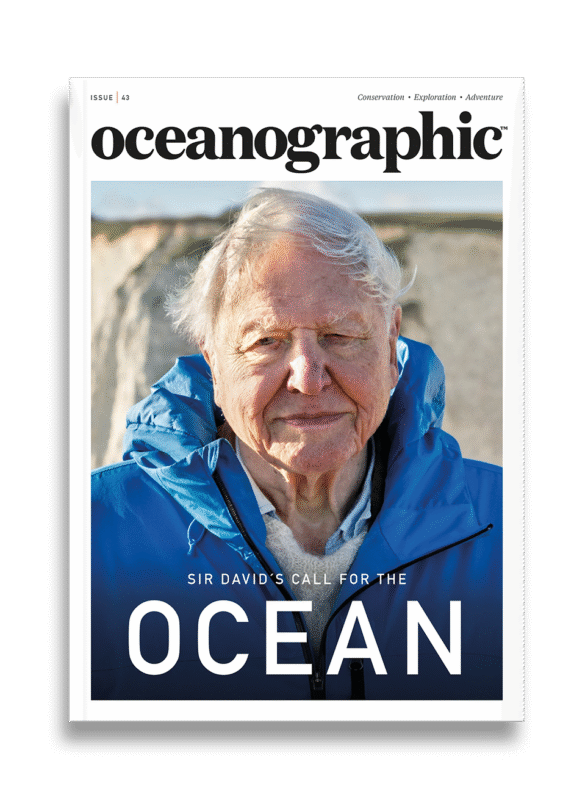
Back Issues
Issue 43 Sir David Attenborough’s ‘Ocean’

Back Issues
Issue 41 Holdfast to the canopy
Enjoy so much more from Oceanographic Magazine by becoming a subscriber.
A range of subscription options are available.
